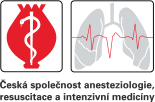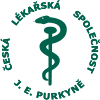Anest. intenziv. Med. 2010;21(6):317-323
In-hospital therapeutic hypothermia in cardiac arrest survivors: Growing implementation in the Czech Republic (PRE-COOL 2: Hospital Survey 2008)Resuscitation - Original Article
- 1 Územní středisko záchranné služby Středočeského kraje, Beroun
- 2 Letecká záchranná služba, Hradec Králové
- 3 Územní středisko záchranné služby Středočeského kraje, Kladno
- 4 KARIM, LF UK a FN Hradec Králové
Objective:
To compare the extent of therapeutic mild hypothermia (TH) usage in cardiac arrest survivors in the Czech Republic during the last years, to assess the impact of the guidelines on TH usage and to analyze the reasons of its non-use.
Design:
National questionnaire survey.
Setting:
Emergency Medical Service, Department of Anaesthesiology and Intensive Care Medicine.
Materials and methods:
After completing a list of all non-surgical intensive care units (ICU) in the Czech Republic, their lead physicians were sent a structured questionnaire in December 2006 (S2006) and October 2008 (S2008).
Results:
Total 39.7% and 41.5% (p = 0.617) ICUs out of a comparable number of ICUs surveyed (S2006: n = 468, S2008: n = 487) responded. We detected an increase in TH usage among the ICUs in the Czech Republic that provide post-cardiac arrest care from 50.7% in S2006 to 63.8% in S2008 (p = 0.037). The proportion of patients treated with TH out of all admitted cardiac arrest patients was similar (S2006: 53.3 ± 33.5%, S2008: 57.3 ± 33.2%, p = 0.317). The most powerful predictor of TH implementation in an ICU was having more than ten admitted cardiac arrest patients per year (OR 11.66, 95% CI 3.9-39.5, p < 0.001). The most frequent reason for TH non-use as identified in S2008 was lack of funds (54.9%). A maximum incremental increase of the number of ICUs using TH occurred in 2007, predominantly on the basis of the 2005 European Resuscitation Council Guidelines.
Conclusion:
A significant increase of in-hospital TH implementation in cardiac arrest survivors in the Czech Republic was observed during the last years. It was especially promoted by the recent guidelines for cardiopulmonary resuscitation.
Keywords: therapeutic mild hypothermia; implementation; cardiac arrest; cardiopulmonary resuscitation; intensive care
Received: May 7, 2010; Accepted: September 21, 2010; Published: December 1, 2010 Show citation
| ACS | AIP | APA | ASA | Harvard | Chicago | Chicago Notes | IEEE | ISO690 | MLA | NLM | Turabian | Vancouver |
References
- Nolan, J. P., Morley, P. T., Hoek, T. L., Hickey, R. W. Advancement Life support Task Force of the International Liaison committee on Resuscitation. Therapeutic hypothermia after cardiac arrest. An advisory statement by the Advancement Life support Task Force of the International Liaison committee on Resuscitation. Resuscitation, 2003, 57, p. 231-235.
 Go to original source...
Go to original source...  Go to PubMed...
Go to PubMed... - Nolan, J. P., Deakin, C. D., Soar, J., Böttiger, B. W., Smith, G. European Resuscitation Council. European Resuscitation Council guidelines for resuscitation 2005. Section 4. Adult advanced life support. Resuscitation, 2005, 67, Suppl 1, p. S39-S86.
 Go to original source...
Go to original source...  Go to PubMed...
Go to PubMed... - Castrén, M., Silfvast, T., Rubertsson, S. et al. Task Force on Scandinavian Therapeutic Hypothermia Guidelines, Clinical Practice Committee Scandinavian Society of Anaesthesiology and Intensive care Medicine. Scandinavian clinical practice guidelines for therapeutic hypothermia and post-resuscitation care after cardiac arrest. Acta Anaesthesiol. Scand., 2009, 53, p. 280-288.
 Go to original source...
Go to original source...  Go to PubMed...
Go to PubMed... - Krawczyk, P., Fraczek, B., Drab, E. Use of therapeutic hypothermia in Polish intensive care units. Resuscitation, 2008, 79, p. 339.
 Go to original source...
Go to original source...  Go to PubMed...
Go to PubMed... - Oksanen, T., Pettilä, V., Hynynen, M., Varpula, T. Intensium Consortium study group. Therapeutic hypothermia after cardiac arrest: implementation and outcome in Finnish intensive care units. Acta Anaesthesiol. Scand., 2007, 51, p. 866-871.
 Go to original source...
Go to original source...  Go to PubMed...
Go to PubMed... - Skulec, R., Dostalova, G., Kovarnik, T., Linhart, A., Seblova, J. Therapeutic hypothermia in cardiac arrest survivors: a survey of practice in the Czech Republic. Resuscitation, 2008, 77, p. 419-420.
 Go to original source...
Go to original source...  Go to PubMed...
Go to PubMed... - Hypothermia after Cardiac Arrest Study Group. Mild therapeutic hypothermia to improve the neurologic outcome after cardiac arrest. N. Engl. J. Med., 2002, 346, p. 549-556.
 Go to original source...
Go to original source...  Go to PubMed...
Go to PubMed... - Bernard, S. A., Gray, T. W., Buist, M. D. et al. Treatment of comatose survivors of out-of-hospital cardiac arrest with induced hypothermia. N. Engl. J. Med., 2002, 346, p. 557-563.
 Go to original source...
Go to original source...  Go to PubMed...
Go to PubMed... - Holzer, M., Bernard, S. A., Hachimi-Idrissi, S., Roine, R. O., Sterz, F., Müllner, M. Collaborative Group on Induced Hypothermia for Neuroprotection After Cardiac Arrest. Hypothermia for neuroprotection after cardiac arrest: systematic review and individual patient data meta-analysis. Crit. Care Med., 2005, 33, p. 414-418.
 Go to original source...
Go to original source...  Go to PubMed...
Go to PubMed... - Abella, B. S., Rhee, J. W., Huang, K. N., Vanden Hoek, T. L., Becker, L. B. Induced hypothermia is underused after resuscitation from cardiac arrest: a current practice survey. Resuscitation, 2005, 64, p. 181-186.
 Go to original source...
Go to original source...  Go to PubMed...
Go to PubMed... - Wolfrum, S., Radke, P. W., Pischon, T., Willich, S. N., Schunkert, H., Kurowski, V. Mild therapeutic hypothermia after cardiac arrest - a nationwide survey on the implementation of the ILCOR guidelines in German intensive care units. Resuscitation, 2007, 72, p. 207-213.
 Go to original source...
Go to original source...  Go to PubMed...
Go to PubMed... - Laver, S. R., Padkin, A., Atalla, A., Nolan, J. P. Therapeutic hypothermia after cardiac arrest: a survey of practice in intensive care units in the United Kingdom. Anaesthesia, 2006, 61, p. 873-877.
 Go to original source...
Go to original source...  Go to PubMed...
Go to PubMed... - Kennedy, J., Green, R. S., Stenstrom, R. CAEP Critical Care Committee. The use of induced hypothermia after cardiac arrest: a survey of Canadian emergency physicians. CJEM, 2008, 10, p. 125-130.
 Go to original source...
Go to original source...  Go to PubMed...
Go to PubMed... - Bianchin, A., Pellizzato, N., Martano, L., Castioni, C. A. Therapeutic hypothermia in Italian intensive care units: a national survey. Minerva Anestesiol., 2009, 75, p. 357-362.
 Go to PubMed...
Go to PubMed... - Sim, M., Dean, P., Booth, M., Kinsella, J. Uptake of therapeutic hypothermia following out-of-hospital cardiac arrest in Scottish Intensive Care Units. Anaesthesia, 2008, 63, p. 886-887.
 Go to original source...
Go to original source...  Go to PubMed...
Go to PubMed... - Merchant, R. M., Soar, J., Skrifvars, M. B. et al. Therapeutic hypothermia utilization among physicians after resuscitation from cardiac arrest. Crit. Care Med., 2006, 34, p. 1935-1940.
 Go to original source...
Go to original source...  Go to PubMed...
Go to PubMed... - Bouwes, A., Kuiper, M. A., Hijdra, A., Horn, J. Induced hypothermia and determination of neurological outcome after CPR in ICUs in the Netherlands: results of a survey. Resuscitation, 2010, 81, p. 393-397.
 Go to original source...
Go to original source...  Go to PubMed...
Go to PubMed... - Binks, A. C., Murphy, R. E., Prout, R. E. et al. Therapeutic hypothermia after cardiac arrest - implementation in UK intensive care units. Anaesthesia, 2010, 65, p. 260-265.
 Go to original source...
Go to original source...  Go to PubMed...
Go to PubMed... - Cvachovec, K., Černý, V., Dostál, P, et al. Czech Society of Anaesthesiology and Intensive Care Medicine CLS JEP, Czech Society of Intensive Medicine CLS JEP, Czech Society for Emergency and Disaster Medicine CLS JEP. Consensual statement for the application of therapeutic hypothermia. Anest. Intenziv. Med., 2009, 20, p. 221-224.
- Merchant, R. M., Abella, B. S., Peberdy, M. A. et al. Therapeutic hypothermia after cardiac arrest: Unintentional overcooling is common using ice packs and conventional cooling blankets. Crit. Care Med., 2006, 34, 12 Suppl., p. S490-S494.
 Go to original source...
Go to original source...  Go to PubMed...
Go to PubMed... - Škulec, R., Kovárník, T., Bělohlávek, J. et al. Nadměrné ochlazení během mírné hypotermie po srdeční zástavě - fenomén zasluhující pozornost. Vnitr. Lek., 2008, 54, p. 609-614.
 Go to PubMed...
Go to PubMed... - Brooks, S. C., Morrison, L. J. Implementation of therapeutic hypothermia guidelines for post-cardiac arrest syndrome at a glacial pace: seeking guidance from the knowledge translation literature. Resuscitation, 2008, 77, p. 286-292.
 Go to original source...
Go to original source...  Go to PubMed...
Go to PubMed... - Søreide, E., Sunde, K. Therapeutic hypothermia after out-of hospital cardiac arrest: how to secure worldwide implementation. Curr. Opin. Anaesthesiol., 2008, 21, p. 209-215.
 Go to original source...
Go to original source...  Go to PubMed...
Go to PubMed... - Pathman, D. E., Konrad, T. R., Freed, G. L., Freeman, V. A., Koch, G. G. The awareness-to-adherence model of the steps to clinical guideline compliance. The case of pediatric vaccine recommendations. Med. Care, 1996, 34, p. 873-889.
 Go to original source...
Go to original source...  Go to PubMed...
Go to PubMed...





